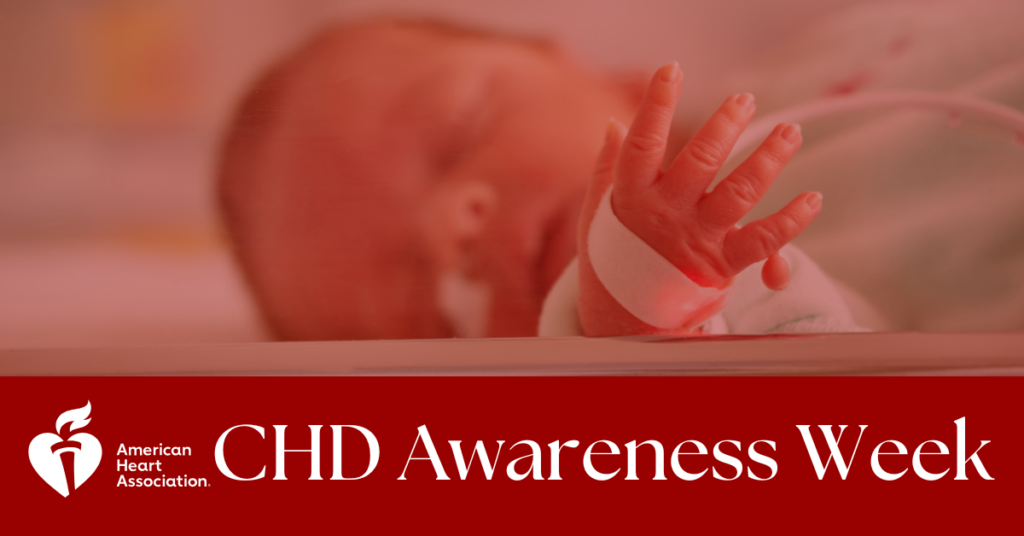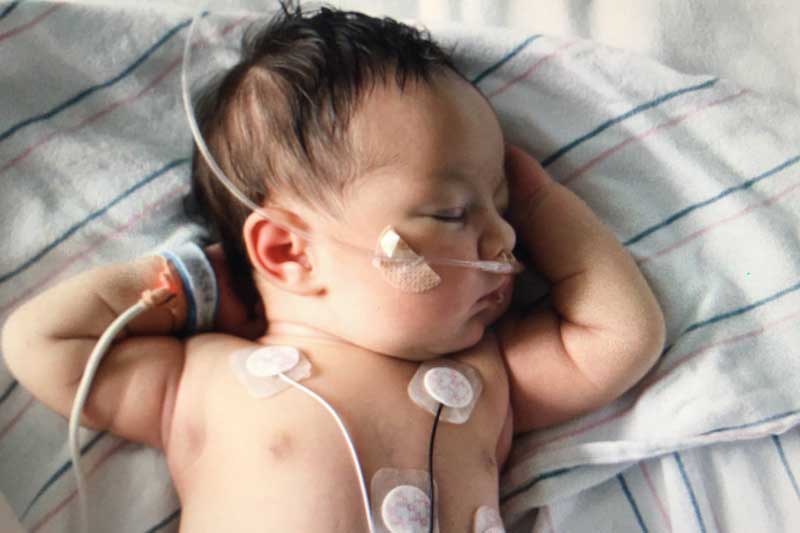

Congenital Heart Defects (CHDs) are the most common type of birth defect, affecting approximately 1 in every 100 babies born[1],[2]. CHD Awareness Week, observed annually and this year from February 7th to 14th, is a crucial time to shine a light on these conditions, celebrate the strength of those living with them and raise awareness about the importance of early detection and ongoing care.
CHDs are structural problems with the heart that are present at birth. These defects can range in severity from mild to life-threatening and can affect the heart’s chambers, valves, or blood vessels. While the exact cause of many CHDs is unknown, several risk factors have been identified, including:
- Family history: Having a parent or sibling with a CHD increases the risk.
- Genetic conditions: Certain genetic disorders, like Down syndrome, are associated with a higher risk of CHDs.
- Maternal health: Factors such as maternal diabetes, certain medications and infections during pregnancy can increase the risk.
- Environmental exposures: Exposure to certain substances during pregnancy may also play a role.
Recognizing and supporting individuals with CHDs is vital. Early diagnosis and treatment are essential for improving outcomes and quality of life. Many children and adults with CHDs require lifelong care, including surgeries, medications and ongoing monitoring. Raising awareness helps to ensure that these individuals receive the support and resources they need to thrive. It also fosters a greater understanding within our communities, reducing stigma and promoting inclusion.

Meet Cristina Civetta, a heart survivor whose story is a testament to resilience and the power of medical advancements. Born in 1984 with a fragile, failing heart due to Congenital Heart Disease, Cristina’s journey began with her first surgery at just eighteen hours old. In an era before routine prenatal heart scans, her CHD was a surprise, requiring a shunt to improve blood flow. Her early years were marked by further challenges, including a near-fatal crisis at 19 months that led to emergency open-heart surgery. Cristina underwent multiple procedures throughout her childhood and adolescence, including surgery to correct Tetralogy of Fallot and later, procedures to address reduced oxygen levels. Despite these medical hurdles, Cristina’s parents instilled in her a sense of normalcy, which was reinforced by her supportive friends. As an adult, Cristina faced more heart procedures, including pacemaker implantation and, finally, a life-changing open-heart surgery in 2013, which included a double valve replacement. Today, Cristina thrives, feeling healthier than ever. Her scars, once a source of insecurity, are now viewed as warrior marks, symbols of her incredible journey. Married in 2018, Cristina’s story is one of hope, strength and a deep appreciation for the medical advancements that saved her life.
Read Cristina’s inspiring letter to her younger self HERE.

This CHD Awareness Week, you can make a difference! Learn more about CHDs, share information with your friends and family and help us spread awareness. Your support can make a real difference in the lives of those affected by CHDs.
Visit the American Heart Association’s website to learn more about CHDs, find resources and discover ways to get involved.
[1] Hoffman JI, Kaplan S. The incidence of congenital heart disease. J Am Coll Cardiol 2002;39:1890–900. CrossRef PubMed
[2] Reller MD, Strickland MJ, Riehle-Colarusso T, Mahle WT, Correa A. Prevalence of congenital heart defects in metropolitan Atlanta, 1998-2005. J Pediatr 2008;153:807–13.